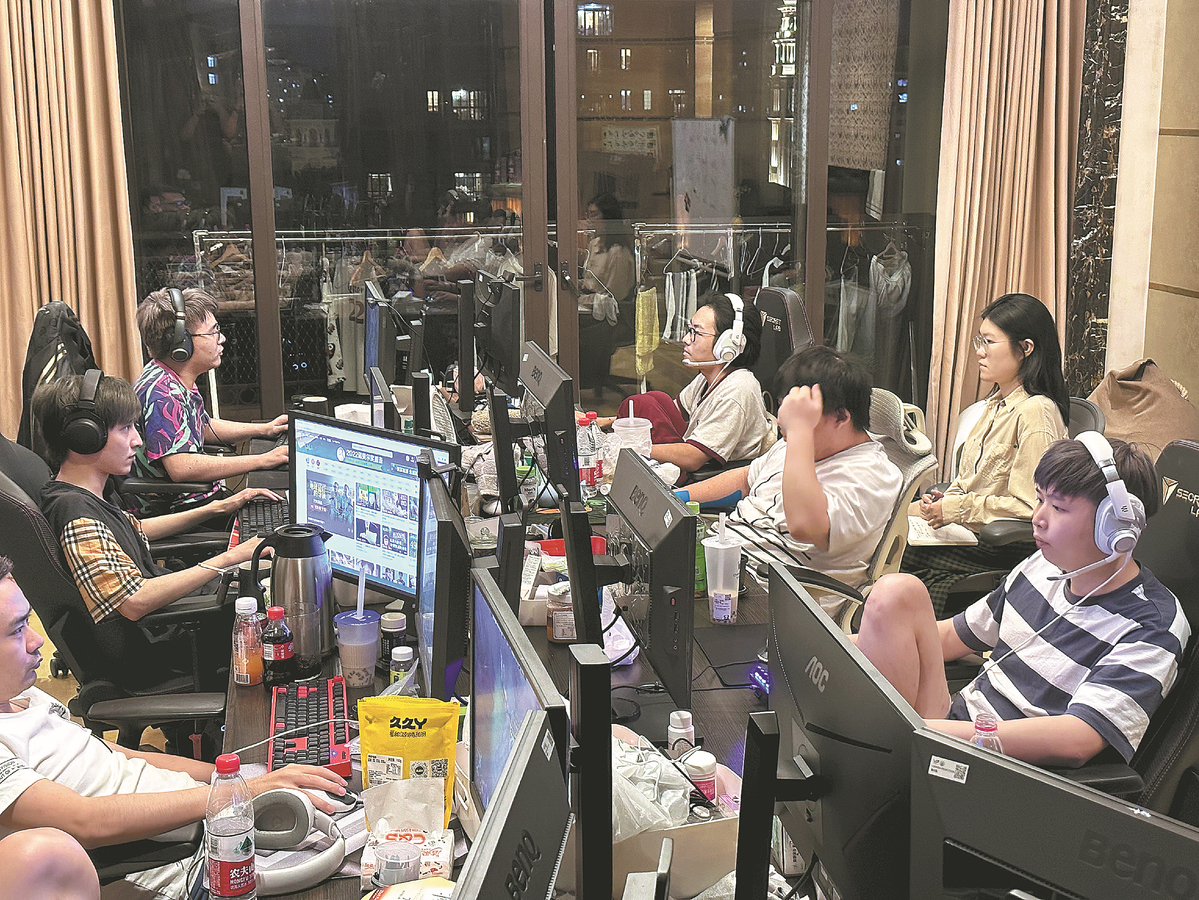Psychologist plays vital role in success of esports industry


However, players are not her only focus with coaches sometimes also needing help.
"The importance of a coach in the team is sometimes even greater than that of a group of team members. This position is very difficult, requiring tactics, analysis, as well as the ability to face uncontrollable situations. The pressure on a coach is always high," she added.
China's esports have been rapidly developing in recent years thanks to the strong policy support and updating of digital technology. According to the data released at the China Digital Entertainment Congress held in Shanghai in July, the overall revenue of China's esports industry reached 75.993 billion yuan ($10.34 billion) from January to June, an increase of 11.74 percent month on month.
At the upcoming 19th Asian Games, esports became an official event for the first time and was included in the national medal list. It was also the only event that required lottery ticket buying at this Asian Games and the tickets were soon sold out.
With more people getting involved in esports in China, the importance of esports psychological counselors has become indispensable.
Player Danny (Kyle Sakamaki, US) from the Evil Geniuses team was announced last September to be temporarily absent from the League of Legends Championship Series due to psychological issues during his peak period. Top Esports club's coach Luo Sheng, has temporarily left the team due to psychological reasons. Korean player Jang "Nuguri" Ha-gwon, the former World Champion in DWGKIA also suffered from psychological problems and announced his retirement from the professional League of Legends scene at the age of 23 in 2022.
"I have met many top athletes, including champions in Olympic Games, World Championships, and Asian Games. Many more people have suicidal tendencies than we imagined, and some of them also have mental health problems, such as depression," said esports psychological counselor Liu Jiejie who has served in LNG Esports.
"During my years as an esports counselor, some of the players I have encountered have varying degrees of psychological disturbance," Liu added.
Early this year, Liu conducted a mental health screening on 45 esports players, covering multiple popular esports events.
Among them, 17 players experienced significant stress, 18 had symptoms of mild anxiety, six had moderate anxiety, and one had a more severe condition with a high frequency of suicidal ideation. Liu said the player with the most serious mental health problem has been diagnosed with severe depression by the Shanghai Mental Health Center and accepted treatment.
"Although the sample for this survey cannot fully represent the entire esports industry, I think that all esports clubs need to pay more attention to psychological issues," Liu added.




































